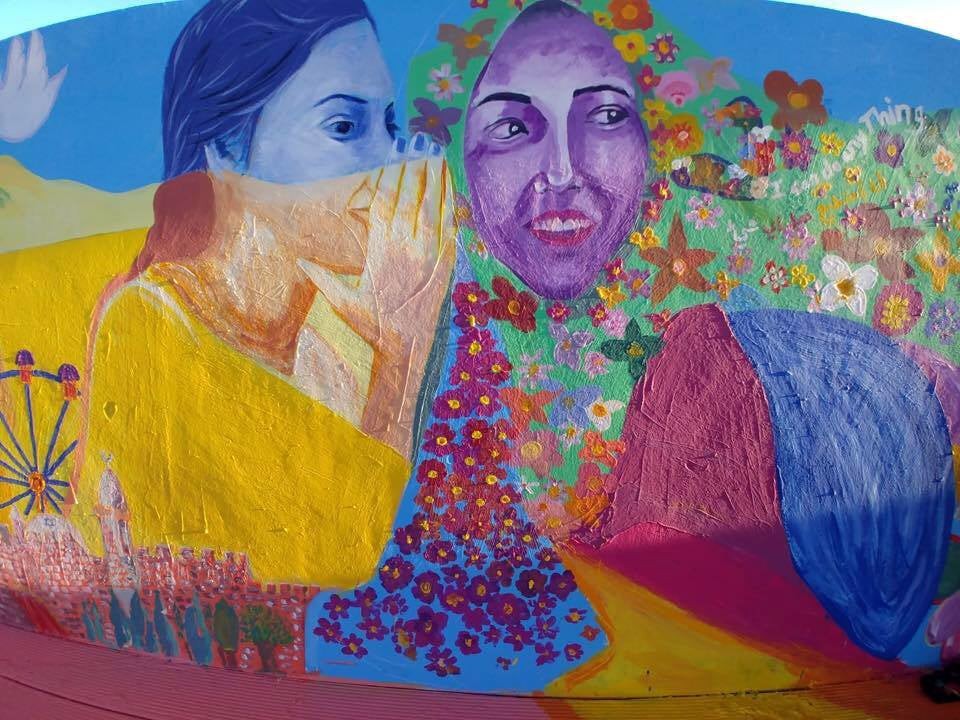Coexistence initiatives in Israel tentatively resume as Arabs and Jews live side by side amid war

An image of a mural shared by Good Neighbors Abu Tor/Al-Thuri Project on social media. (Courtesy image)
On the morning of October 7, when air raid sirens in Jerusalem warned of incoming rockets, the Jewish and Arab residents of Abu Tor, a neighborhood that skirts both East and West Jerusalem, were thrown into a state of shock. For many, that shock has turned to fear and anger as the extent of Hamas’ brutal massacre and Israel’s ensuing war against Hamas have come fully to light.
Within a day or two of the Hamas attack, the Jews and Arabs who meet weekly at a local cafe to learn and socialize in Hebrew and Arabic decided not to gather, at least for a while. Fears were too high and emotions were too raw.
“Some (Jewish) Israelis felt it wasn’t appropriate to meet” with Arabs while Israel was still burying the massacre’s victims and awaiting word of the 240 hostages Hamas had taken captive, said David Maeir-Epstein, co-founder and volunteer coordinator of the Good Neighbors Abu Tor/Al-Thuri Project. “A lot of the Palestinians in the group feared for their personal safety” at a time when far-right-wing Jewish extremists were vowing revenge against Israel’s Arab minority.




